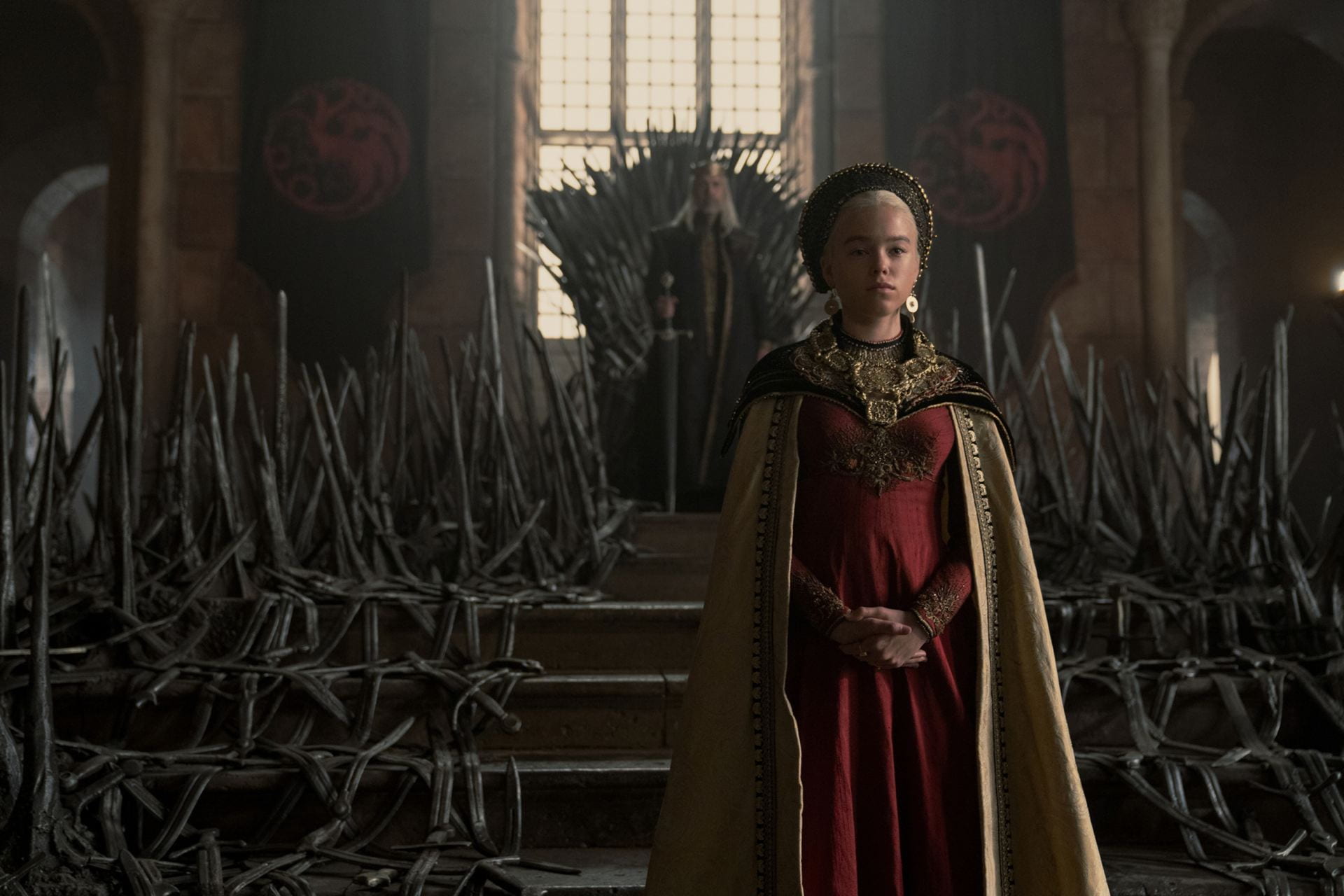
Paddy Considine and Milly Alcock in “House of the Dragon.” Credit: Ollie Upton via TNS
The second episode of “House of the Dragon” has aired, remarkably surpassing the series premiere’s record viewership and raking in a staggering 10.2 million viewers Sunday night, according to HBO Max.
With the second episode, titled “The Rogue Prince,” also comes the return of “Game of Thrones” composer Ramin Djawadi, and his celebrated cello score has largely remained the same since audiences last heard it years ago, serving as a lovely audial aid representing the beginning of the end of House Targaryen.
There is a notable time jump in this second episode, as it takes place six months after the events of “The Heirs of the Dragon,” and with that comes the stapled continuation of problems and drama. “The Rogue Prince” is largely characterized by its defining moments, beginning with a cold opening shot of struggling, half-alive kingsmen being fed to crabs on a cold, wet beach. Ironically, our new villain, Craghas Drahar, who was subtly hinted at in the first episode, dawns the title of crabfeeder.
Following the death of his wife and son, King Viserys’ relationship with his sole heir and daughter, Rhaenyra, has taken a hit. Not only has their dynamic suffered from the loss of integral family members, but as Viserys is pressured by allies to remarry for the sake of the throne, conflict between the two arises.
In typical Westerosi fashion, King Viserys is strongly advised by his allies to marry his 12-year-old first cousin, once removed, and internally battles with this throughout the duration of the episode. It is clear he has little to no interest in wedding her as his eyes have long been set on another, but that does not mean he’s off the hook from having to remarry.
There is a particular scene which takes place in a dim, fire-lit Sept — or church — between Rhaenyra and Alicent Hightower, daughter of the Hand of the King, that really shows the irony of their relationship. Rhaenyra is voicing concerns about her father remarrying, while Alicent reassures her there is no reason to worry, that her father loves her and wouldn’t yet replace her as his heir. There is serious nuance to these shots, with pieces of dialogue and acting that encompasses everything that is great about the show thus far.
This scene is followed by one of the best shots to date, where Alicent is awkwardly discussing with Viserys the prospect of him marrying his cousin. We see her fingers nervously picking at her skin, showing audiences she feels anxious about the decision.
Meanwhile, in Dragonstone, the disgraced Daemon Targaryen has been squatting in a castle for six months since we last saw him leave King’s Landing. However, once he steals a dragon egg from the king in the middle of the night, the hand and kingsguard must go retrieve it. Unfortunately for Daemon, diplomacy is no match for dragon power, as when Rhaenyra comes swooping in on her dragon, Syrax, Daemon finds himself unable to harm his niece, gives back the egg and retreats.
In a captivating final act, Viserys disobeys his allies, his daughter and chooses to announce his marriage with none other than Alicent Hightower, rather than Lord Corlys’ young daughter as advised. In disbelief, Rhaenyra storms off, and Lord Corlys sets off to Dragonstone where he makes a new alliance with Daemon. Enticing him with the episode’s final line:
“Our worth is not given. It must be made.”
It’s early, and audiences are hesitant to bet on another “Game of Thrones” product, but if the show keeps the pace it’s held, viewership records could continue to be broken.
Episode two rating: 4/5


